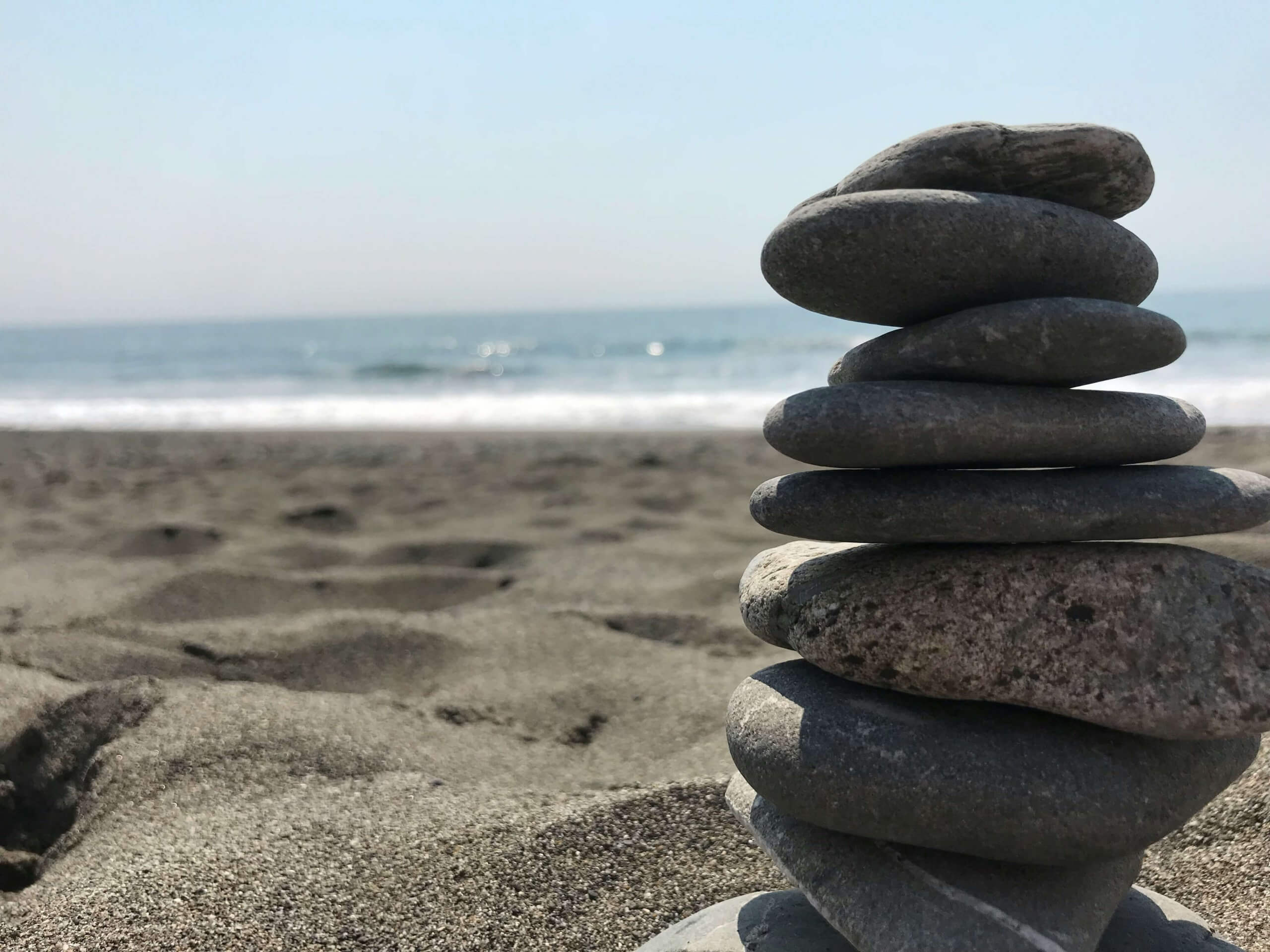By Jenna D’Angelo, LAC, Mindful Connections Counseling
I am a proud mom to my two-and-a-half-year-old daughter, who has taught me SO many lessons since the day she arrived. Some lessons are practical such as how to function on little to no sleep and complete household chores with one hand, while others are funny-but-true like learning to enjoy cold coffee 🙂!
But beyond these everyday adjustments, the most profound lessons have been about myself—discoveries I never expected to make on this parenting journey. For example, I realized I’ve never fully mastered regulating my emotions. I’ve been lucky enough to get this far without noticing, but once you become a parent, you realize that just doesn’t fly anymore!
When Tiny Humans Test Our Emotions: The Parenting Challenge
There is probably nothing else on this earth that can test your emotion regulation ability like a crying baby at three in the morning. I think we can all agree on that, right? So how do we react to this? I’ve often found myself tearing up, picking fights with my husband, and at times felt my anger rising towards my little one.
Am I perfect? No. Am I always trying to be better? Yes. I’m betting some of you can relate to this, so let’s talk about it.
The Midnight Wake-Up Call: What Parenting Reveals About Our Emotional Regulation
Emotion regulation is a skill we’re either taught or not when we grow up. Now, don’t go running to your parents ready to yell at them for not teaching you, as they might not have been taught either! It is not something that was necessarily prioritized until now. But here’s the good news – it is never too late to learn!
It can also be looked at as our ability to cope with emotions. For example, if my baby woke me up crying at 3 AM, I may feel sleep-deprived, frustrated, angry that my partner didn’t get up first, upset, disappointed, guilty, resentment, or potentially all of these at once. That is quite a lot of emotions for just one middle-of-the-night moment!!
Being Present When You’re Exhausted: The Mindfulness Solution For Tired NJ New Moms
Bringing awareness to what stirs up big emotions is huge. We often naturally offer a gut reaction towards bubbling emotions – spoiler alert – it doesn’t usually turn out as effectively as we want. That’s why it is so important to check in with ourselves first, then respond to the situation appropriately.
One mindfulness practice that’s transformed my parenting is what I call the “Compassionate Pause.” When I find myself overwhelmed by those 3 AM wake-ups or toddler tantrums, I:
- Notice my difficult emotions without judgment: “I’m feeling frustrated and exhausted right now”
- Remind myself this is part of the universal parenting experience: “Countless other parents are feeling this exact way right now. We are all in this together.”
- Offer myself kindness: “This is really hard. And it would be for anybody. It’s okay to feel this way.”
- Embrace the paradox of parenting: “This moment is incredibly difficult AND it is fleeting.”
This last step—holding the “both/and” of parenting—can be particularly powerful. For those middle-of-the-night wake-ups, I can acknowledge how depleted I feel while simultaneously visualizing my little innocent baby as a teenager waving goodbye for college, or walking down the aisle at her wedding. I imagine myself in that future moment, and picture myself in the present moment. I will remember how tiny she was; AND I will remember how exhausted I was.
Parenting is full of these contradictions: it’s exhausting AND precious, frustrating AND fleeting, demanding AND rewarding. By making space for both realities, I can honor my struggles while still connecting with the deeper meaning in these challenging moments.
This practice helps me accept that feeling angry, tired, or overwhelmed doesn’t make me a bad parent—it makes me human. By giving myself permission to feel what I’m feeling without judgment, I create space to respond more gently to both myself and my child.
What’s most powerful about this approach is that it models for our children how to handle difficult emotions—not by pretending they don’t exist, but by acknowledging them with kindness.
Improving Your Relationships With Mindful Parenting NJ
Through finding ways to be present, and check in with myself has become an effective way for me to not only regulate myself, but it also has been a lifesaver in my relationship.
If I’m frustrated with my partner, I aim to do a self check in first:
- Have I eaten or slept?
- Am I in a headspace to make rational decisions right now?
- Would I be this mad if I wasn’t tired/hungry?
- Am I guilty of doing what I’m mad at him for doing?
- Did he do this with malicious intent or was it an honest mistake?
- What is going on with him right now mentally?
- Maybe he is stressed about something he isn’t talking about?
Awareness and reflection can save you from potential regret. Additionally, it gives you the opportunity to be more aware of your triggers or underlying issues that affect you most. From there, you can find ways to solve it or cope with it.
Mindfulness in Action: Parent Coaching NJ Strategies
Mindfulness is being aware of the present moment and staying in it. You’re probably thinking, well yeah duh I do that all the time…but do you?
When you’re home with your child do you ever catch yourself:
- Worrying about a work task you have to get done?
- Realizing you didn’t hear what someone said because you were looking at something on your phone?
- Envisioning the mess you’ll need to clean up later before the kids are even done playing?
- Thinking of what you’re going to make for dinner tonight, or whether the laundry needs to be done today or tomorrow?
These are examples of being physically, but not mentally present in the moment.
Trust me, I get it, I do it too. Mindfulness can be an effective tool to regulate ourselves, but also to hold ourselves accountable!
Finding Connection Without Sacrificing Productivity
The Time-Block Method
Let me share one of my game-changing strategies that I learned from my therapist:
Schedule your days in time blocks.
Rather than trying to multitask constantly (which research shows actually makes us less efficient and more stressed), designate specific blocks of time for different priorities. Say you work 9-5, you pick your kid up from school, and get home around 5:30. Block off at least 5:30-6:30 to be present – no phones, no work talk, NOTHING. Just being present in the moment. Only you and your child exist during this time.
This can work the same way for getting work done and being productive. Your time as a parent is more valuable now than ever. So start by blocking off 30 minutes and decide which task is the most important right now.
This strategy will help keep you from ruminating about everything that needs to get done and focus on the task at hand (instead of the whole list). Even if you can’t tackle the whole list, you don’t have to feel guilty about which task you chose first and why. Try it out for just a week, see how it affects your parenting, mood, satisfaction, productivity, etc. I dare you!
Pause Before Responding
Another practice that has transformed my parenting is the “sacred pause”—intentionally taking 5-10 seconds before responding to challenging behavior. I often use this pause to silently ask myself, “What does my child need right now?” rather than focusing solely on the behavior I want to stop.This tiny window allows me to respond thoughtfully rather than reactively. This is the core of mindfulness–noticing what’s happening for you before responding or reacting.
May the odds of uninterrupted sleep be ever in your favor,
Jenna
Ready to Transform Your Parenting Journey?
If Jenna’s story resonates with you—if you’ve found yourself overwhelmed at 3 AM, questioning your parenting abilities, or struggling to regulate your emotions while caring for your little one—you’re not alone. The challenges she describes are universal parts of the motherhood experience, and there’s support available to help you navigate them with greater confidence and compassion.
Join Our Braving Motherhood Support Group
Imagine having the tools to navigate mom guilt and shame. Picture feeling connected and confident in your unique identity as a parent. Motherhood doesn’t have to leave you feeling lost at sea—with the right support and community, you can feel grounded in your role as a mother.
Take the First Step Today
You don’t have to navigate motherhood alone. Just as Jenna discovered that emotion regulation and mindfulness transformed her parenting experience, you too can develop the tools and community support that will help you thrive.
Ready to join our Braving Motherhood Support Group or learn more about our services?
Contact Brave Minds Psychological Services today to:
- Schedule a consultation to see if our group is right for you
- Learn more about individual therapy options
- Discuss how we can support your unique motherhood journey
Because every mother deserves to feel confident, connected, and supported in her parenting journey. Your story matters, your struggles are valid, and your growth is possible.




